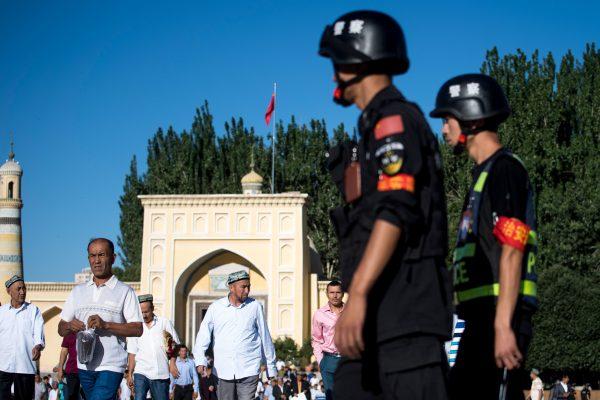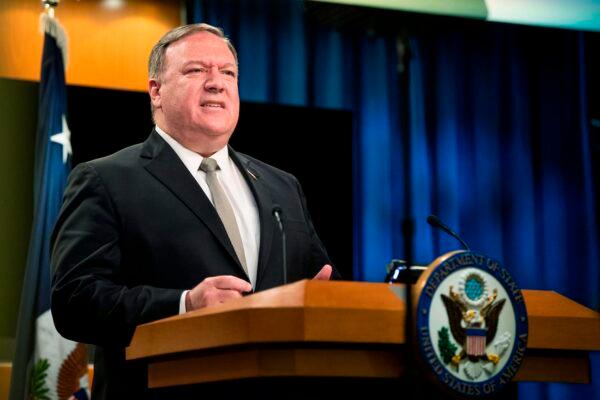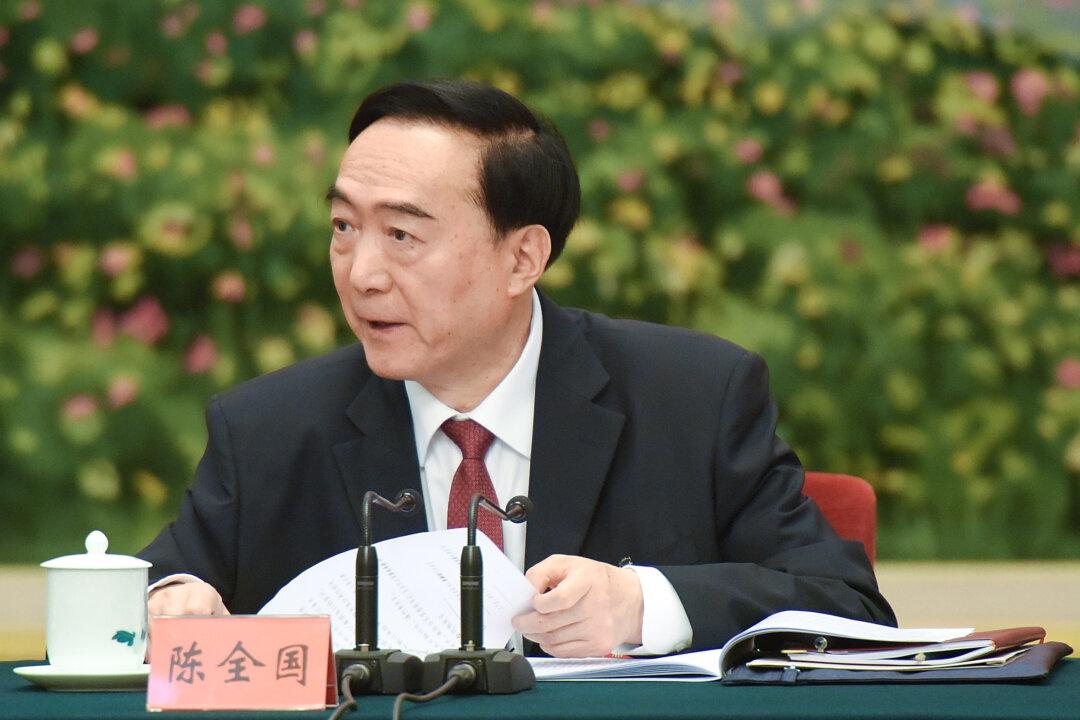WASHINGTON—The United States imposed sanctions on Chinese officials on July 9, including a member of the Chinese Communist Party (CCP)’s powerful Politburo, accusing them of serious human rights abuses against Uyghurs and other ethnic and religious minorities, a move likely to further ratchet up tensions between Washington and Beijing.
The Trump administration targeted the Xinjiang region’s Party Secretary Chen Quanguo, who became the highest-ranking Chinese official to be hit with U.S. sanctions, and the Xinjiang Public Security Bureau (akin to police force). The move comes amid already-high tensions between Washington and Beijing over China’s handling of the coronavirus pandemic and its tightened grip on Hong Kong.
“The United States calls upon the world to stand against the CCP’s acts against its own minority communities in Xinjiang, including mass arbitrary detention, forced labor, religious persecution, and forced birth control, and sterilization,” a White House official said.
The sanctions are imposed under the Global Magnitsky Act, a federal law that allows the U.S. government to target human rights violators around the world with freezes on any U.S. assets, U.S. travel bans, and prohibitions on Americans doing business with them.
The Chinese Embassy in Washington didn’t immediately respond to a request for comment.
China has continually denied mistreatment of the minority group and claims the camps provide vocational training and are needed to fight extremism.
The CCP has used the excuse of potential “extremist threats” to justify its strict surveillance of Uyghurs—who are predominately Muslim—and other Muslim minority groups in the Xinjiang region.

The sanctions were imposed on: Chen, a member of China’s powerful Politburo, a 25-member body of the Party’s top officials; Zhu Hailun, a former deputy Party secretary of the region; Wang Mingshan, the director and Party secretary of the Xinjiang Public Security Bureau; and former Party secretary of the bureau Huo Liujun.

U.S. Secretary of State Mike Pompeo in a statement said he was also imposing further visa restrictions on Chen, Zhu, and Wang, barring them and their immediate family from the United States.
The U.S. Treasury Department said that Chen, the highest-ranking Chinese official to be hit with sanctions, implemented “a comprehensive surveillance, detention, and indoctrination program in Xinjiang, targeting Uyghurs and other ethnic minorities” through the Xinjiang Public Security Bureau.





